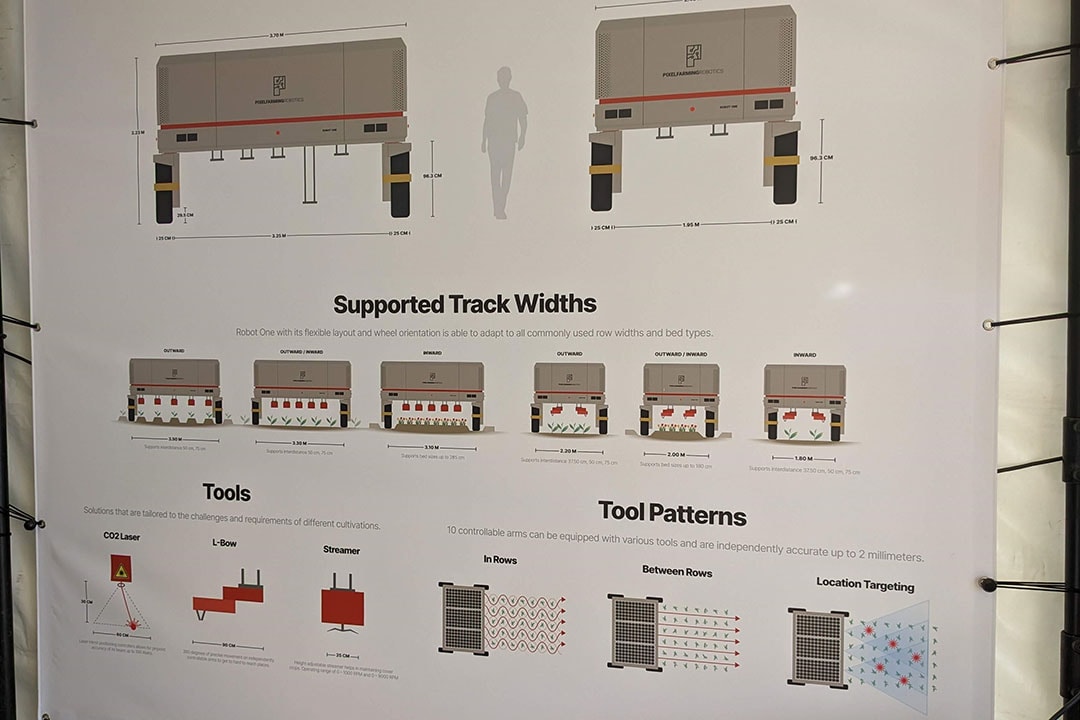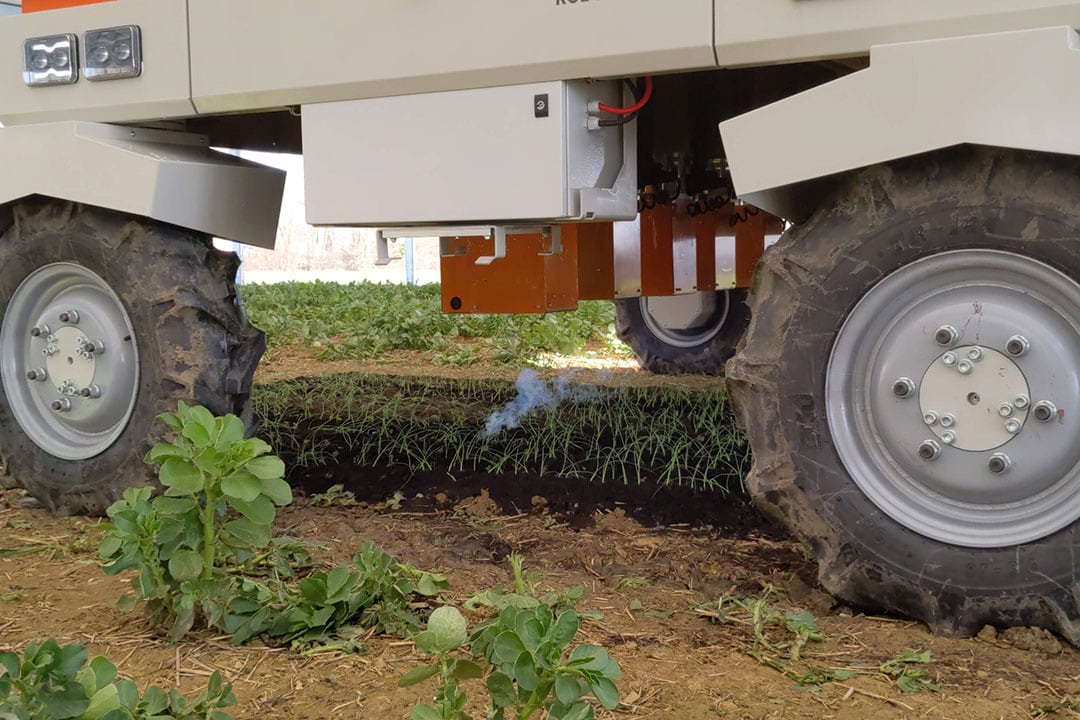Pixelfarming Robotics: CO2 lasers for chemical-free weed control with Robot One

One field robot that has been around for some four years now, is Robot One from Pixelfarming Robotics. Their latest version is lower and has a larger wheel base. They’re also working on adding CO2 lasers for chemical-free weed control.
The journey of Pixelfarming Robotics, a Dutch field robotics and vision technology startup, started in 2017. After several prototypes and a commercial version, the company recently launched its latest version of Robot One, a multifunctional field robot that was primarily developed for chemical-free weed control.
More stable and versatile
Robot One was one of the field robots doing demos at the recent World FIRA. While the looks of the latest model are completely restyled, the technology under the bonnets and covers is the same as before. Robot One is now slightly lower and has an enlarged wheel base to create additional stability and enable more different track widths to suit extra row distances and bed widths.
Text continues below video
The track width is now adjustable from 1.80 to 3.50 m by turning the wheels and having it drive in one of the four different directions. The roof is made of aluminium with solar panels mounted on it. The empty weight of the new version nonetheless increased from 1,650 kgs to 2,000 kgs. The maximum mechanical horsepower is around 32 hp enabling a productivity of up to 1 ha/h.
Text continues below image

CO2 laser application in development
The robot is standard equipped with two rows of five robotic arms. Each of these can be fitted with different tools weighing up to 100 kg each. Various mechanical tools for chemical-free weed control were already available and Pixelfarming Robotics is now also working on the implementation of CO2 lasers for that purpose. The estimated target price for the laser solution is € 7,500 per laser head.

Join 17,000+ subscribers
Subscribe to our newsletter to stay updated about all the need-to-know content in the agricultural sector, two times a week.



